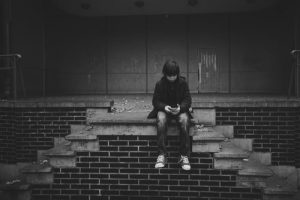
The human race is defined by its ability to think. Homo Sapiens realized the importance of co-existing and working together in groups to survive. This helped them reach the top of the food chain as they were no longer predators. Communication and the invention of tools further strengthened their position in becoming one of the dominant species as they could collectively come up with solutions to problems and also became proficient in growing their own food through agricultural practices. The adverse climatic conditions promoted migration and thus, they became independent of their geographies.
In the past 1000 years, a series of inventions, in Science, Math, Astronomy, and evolving technologies, has accelerated the progress of humankind in leaps and bounds. While most of the advancements we see are based on needs — such as the discovery of vaccines to fight rabies, eradication of smallpox to the advancements in warfare to keep a check on greedy encroachers from already occupied lands — human activities in the past few decades have resulted in catastrophic effects. Humans have been selfishly reckless in their ways and have tipped the balance of nature by activities such as excessive mining, destroying entire ecosystems, overfishing for feeding an overpopulated species, and the likes. Domesticating wild animals too has disturbed the ecological balance in the animal kingdom that was otherwise kept in check by nature.
All the unchecked progress that we created in the real world, has paved way for the digitalization of the entire world, whose consequences are yet to unfold.
Today, thanks to the Internet and its technologies, we literally have the whole world in our hands. In India alone, roughly 45% of the total population (624 million) use the internet and spend roughly about 2.25 hours on social media every day! While one of its motives was to connect us to our loved ones, the corporations that compete for our attention have created paths for extremists to share their views to the same digitally connected world. We thus, unknowingly form opinions, biases and have polarised views without understanding the ground reality.
The metaverse promotes people to create their own digital worlds, while in reality, the real world is in need of mending.
All across social media, individuals are under pressure to portray a perfect picture of themselves to the world; the grim realities and struggles behind this picture-perfect facade are hidden. The metaverse promotes people to create their own digital worlds, while the real world still needs mending. Our ability to feel, touch and talk is becoming weaker as people are more comfortable behind their screens over face to face. Corporations have all the information on individuals but use it mostly to sell products rather than influence them into leading happier lives.
While the birth of social media is based on the democratic principles of the Internet and its technological ability to be open and accessible to all, it has evolved to not only be inclusive and participative but also disruptive. The features of openness, obscurity and anonymity that once gave strength to marginalised communities are now giving room for malicious intentions to grow. — Advaita Kala, The Hindu on Is social media polarising society?
…all of this for more power, more wealth, and accumulation of resources from a planet that is already imbalanced.
We have two identities today- a physical one and a digital one. One where we accept the rules and live with what’s available and the other where we live the way we want, explore to the fullest and create an impact. There is no clarity on which life we are living more and where we are headed to. Finding the right balance between our digital life and physical life is important. Let’s start with using our digital worlds to build and improve our real worlds that we have neglected and exploited for so long.
